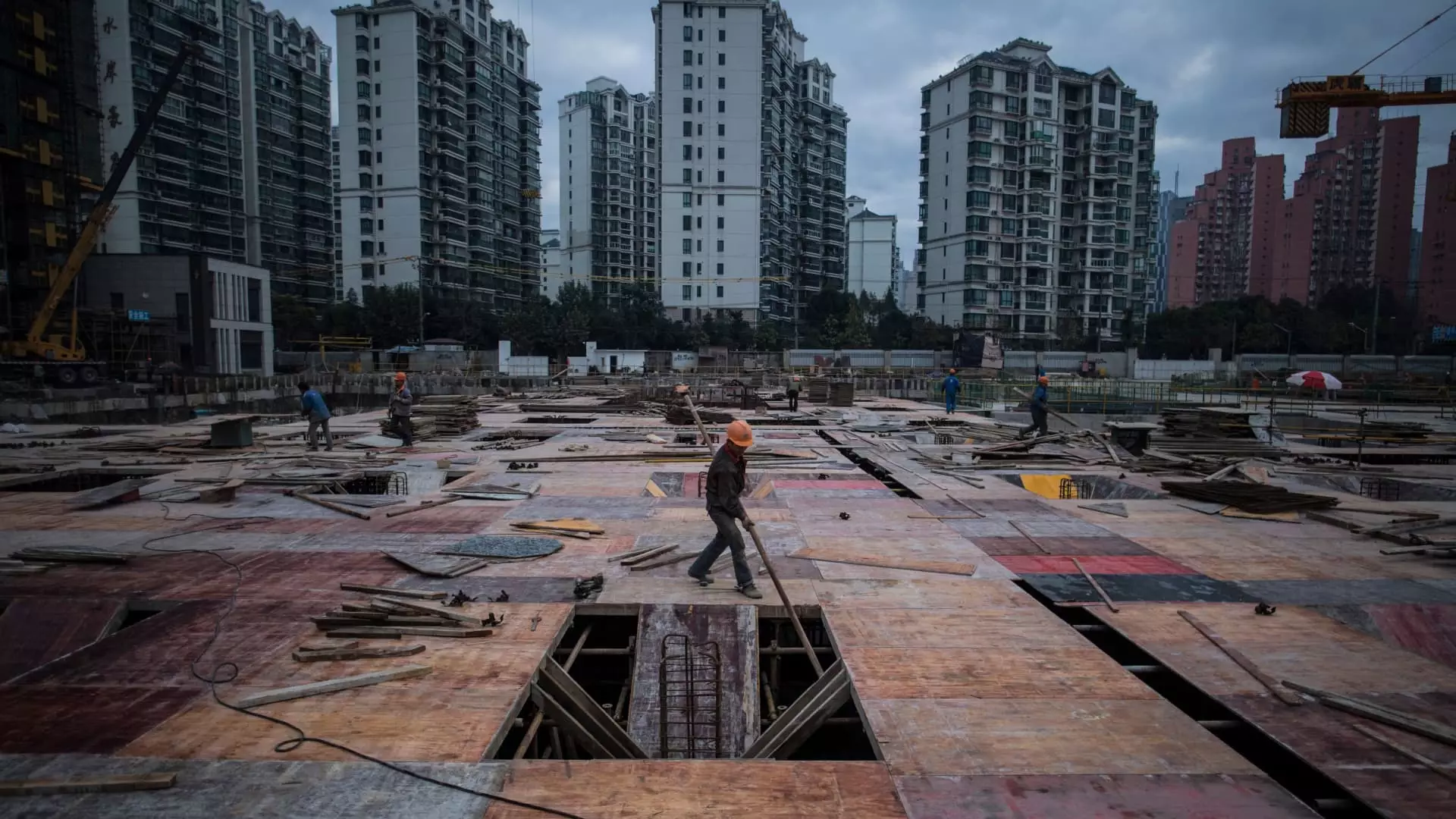The Chinese property market has experienced a tumultuous landscape over recent years, leading to uncertainty among investors, homebuyers, and analysts alike. Although recent stimulus measures have unveiled a glimmer of hope for the beleaguered sector, experts suggest that these interventions are merely temporary and insufficient for comprehensive recovery. Analyzing the immediate outcomes from the Golden Week holiday and the broader economic climate reveals underlying issues that could inhibit a sustained turnaround.
The Golden Week holiday, typically heralded as a significant period for consumer spending and investment in China, saw mixed results this year. According to the China Index Academy, home sales demonstrated substantial growth in Beijing, with average daily sales increasing by a remarkable 81% in terms of floor area, compared to the previous year’s holiday. This spike could be tied to increased consumer confidence, spurred by governmental measures aimed at stimulating homebuying. However, the broader picture painted by statistics from 25 major cities casts a shadow on these localized gains.
While Beijing thrived, other tier 1 cities like Shanghai, Guangzhou, and Shenzhen witnessed steep declines in sales of 61%, 59%, and 57%, respectively. In fact, across the country, there was a 27% drop in average daily transactions of new homes compared to the same holiday last year. This disparity emphasizes the struggle facing not only the national property market but also the vast differences in regional recoveries. Understanding how slight improvements in select cities do little to alleviate the struggles present in numerous other areas is crucial to grasping the overall market sentiment.
Long-Term Trends Paint a Grim Picture
The data from the China Index Academy underscore a troubling trend for the sector, as home sales during the Golden Week have been in decline since 2021, reflecting deeper systemic issues. With average daily sales figures standing at 107,000 square meters this year, down from 158,000 square meters in 2022 and a staggering 177,000 square meters in 2021, the decline seems persistent and worrisome. William Wu from Daiwa Capital Markets rightly emphasizes that without a robust and sustained approach from the government, any improvements observed may prove fleeting.
Analysts suggest placing greater emphasis on long-term sales trends rather than focusing solely on the spikes during limited timeframes, such as holidays. Economic policies should be evaluated based on their enduring effects, rather than transitory patterns observed during peak spending seasons. Shen Meng of Chanson & Co. highlighted the need for a redirected focus that captures the market’s true trajectory, advocating for the scrutiny of policies over a more extended period to assess their efficacy seriously.
To address the ongoing crisis effectively, experts argue that Chinese authorities must consider additional, more aggressive measures tailored to alleviate the burdens shouldered by cash-strapped developers and a floundering array of unsold properties. While there has been a plethora of easing measures introduced—such as lowering mortgage rates and adjusting down-payment ratios—many still believe these steps may not be adequate in revitalizing the property market.
Kenneth Ho of Goldman Sachs highlights the urgency of tackling existing challenges related to “excess inventories.” The reality is that robust policies designed to mitigate these excesses are conspicuously absent, suggesting that authorities may be reluctant or ill-equipped to initiate the required actions. Furthermore, as Zhiwei Zhang from Pinpoint Asset Management points out, the localized improvements signify little solace for the overall sector, where a multitude of developers confront overwhelming debt, leading to credit defaults and declining home values.
While there may be temporary spikes in confidence and sales after the implementation of stimulating initiatives, the looming specter of unresolved issues remains a critical concern for China’s property market. The Golden Week results, although indicative of some localized resiliency, underline the necessity of a comprehensive, long-term strategy aimed at fostering a healthier, more sustainable property environment. As stakeholder confidence hangs in the balance, only time will reveal whether the current policies can pave the way for a genuine resurgence or if they will succumb to the ongoing challenges that continue to undermine the sector’s stability.


Leave a Reply